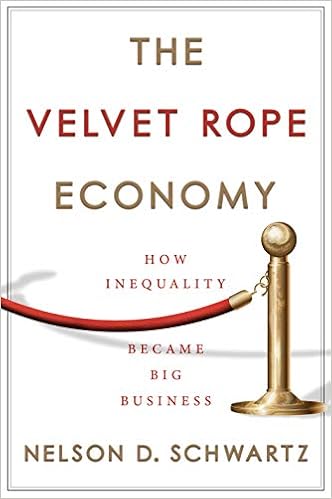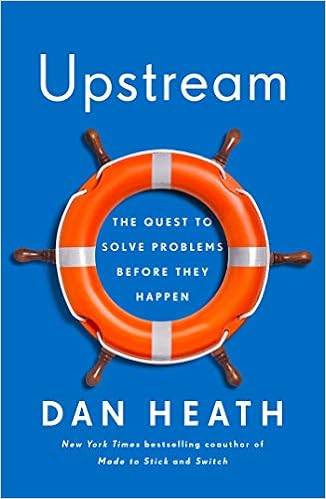Best Of Books Bits 2020: Part I
As 2020, annus horribilus, crawls to a close, let’s look back on one of the bright corners of the year – book publishing. In matters economic and finance, the last 12 months delivered an extraordinary run of fascinating new titles. As usual in this year-end review, we’ll highlight ten that appeared in The Capital Spectator’s weekly Book Bits column over the course of 2020. Choosing only ten is difficult, and more than slightly subjective, but let’s give a whirl. As usual, the short list will be carved into two equally digestible servings, starting with five today, followed with the balance next week. Happy reading!
 ● The Rules of Contagion: Why Things Spread–And Why They Stop
● The Rules of Contagion: Why Things Spread–And Why They Stop
Adam Kucharski
Review via Wired
Kucharski, an epidemiologist at the London School of Hygiene and Tropical Medicine, is a mathematician by training. He uses data and models to predict how disease outbreaks will progress. His new book, The Rules of Contagion: Why Things Spread—and Why They Stop, lays out those tools and how they can be applied to other parts of life. Think methods to predict how panic might course through the global financial system, or how bad information is transmitted on Facebook. But most important, Kucharski says, is what he calls “epidemiological thinking.” That’s a mindset for dealing with incomplete information, as infectious-disease researchers must when they encounter a novel, fast-moving pathogen. Sometimes you might make bad assumptions, and your models might make predictions that never come to pass. But in a crisis, coming up with a hypothesis, even if it’s a rough one, is often the only way to get people to act.
● Radical Uncertainty: Decision-Making Beyond the Numbers
By John Kay and Mervyn King
Review via The Telegraph
That ripping sound you may have heard lately is the noise of economists around the world tearing up carefully-honed forecasts, thanks to the rapidly spreading coronavirus.
For former Bank of England Governor Mervyn King and the senior economist John Kay, the all-too-rapid redundancy of the investment banks’ glossy brochures merely underline the folly of such prognostications in the first place.
In their new book, Radical Uncertainty, the pair turn a critical gaze on their own economics profession and find it badly wanting. They paint an unsparing picture of a discipline enslaved by its models, pretending to knowledge it cannot possibly have, and losing public trust as a consequence.
 ● Capital Wars: The Rise of Global Liquidity
● Capital Wars: The Rise of Global Liquidity
By Michael J. Howell
Summary via publisher (Palgrave Macmillan)
Economic cycles are driven by financial flows, namely quantities of savings and credits, and not by high street inflation or interest rates. Their sweeping destructive powers are expressed through Global Liquidity, a $130 trillion pool of footloose cash. Global Liquidity describes the gross flows of credit and international capital feeding through the world’s banking systems and wholesale money markets. The huge jump in the volume of international financial markets since the mid-1980s has been boosted by deregulation, innovation and easy money, with financial globalisation now surpassing the peaks of integration reached before the First World War. Global Liquidity drives these markets: it is often determinant, frequently disruptive and always fast-moving. Barely one fifth of Wall Street’s huge gains over recent decades have come from earnings: rising liquidity and investors’ appetite for riskier financial assets have propelled stock prices higher.

● The Velvet Rope Economy: How Inequality Became Big Business
By Nelson D. Schwartz
Review via Vox
This is the opening scene of Nelson D. Schwartz’s new book The Velvet Rope Economy: How Inequality Became Big Business, which explains how everything Americans purchase — travel, leisure, education, and health care — suddenly got really good for the wealthy and a lot worse for the rest of us.
Income inequality has risen since the 1970s, and at the same time, companies have begun to cater to the only demographic whose prospects are growing. Fancy new sports stadiums with separate doors for box seat holders, VIP airport terminals, Uber Copters, and the privatization of everything from high school sports to firefighter squads are all examples of what Schwartz dubs the “velvet rope economy.”

● Upstream: The Quest to Solve Problems Before They Happen
By Dan Heath
Review via Publishers Weekly
Heath (The Power of Moments, coauthor), a senior fellow at Duke’s CASE Knowledge Center, urges a preventive, rather than reactive, problem-solving approach in his eloquent manifesto. With the frenetic pace of modern life, Heath observes, it’s easy to become accustomed to putting out fires instead of looking for the spark that’s igniting them. His examples of proactive, “upstream” thinking include a domestic violence prevention task force which, by bringing together police officers, victims’ advocates, health-care workers, and others, has eliminated intimate partner-perpetrated murders in the Massachusetts communities it has served for 14 years running. His takeaways include the need to “unite the right people” (as the domestic violence task force demonstrates), pay attention to early warnings, and find the right point of “leverage” to solve a problem.
Disclosure: None.



